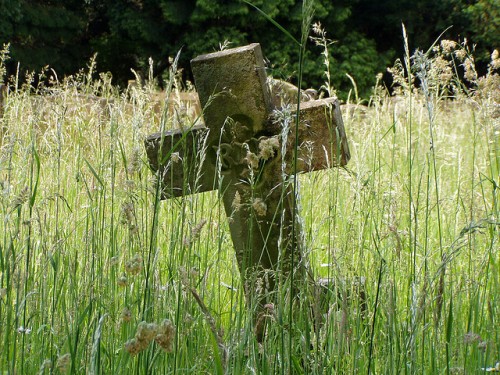
She recently returned to Sunday school and in the midst of the condolences and well wishes, some insensitive lout says, “I guess when you take your trips now, you’ll have to take them in memory of Keith,” in reference to the fact that the couple had always planned to take lots of great trips when they retired. They were always full of plans for how they would travel and the things they would do when they retired and had plenty of free time. They talked incessantly about the places they wanted to see.
While the woman sort of dodged the comment made by Mr. Insensitive, another jerk says, “This is why I always say, ‘You only live once so you’d better make today count. I’m doing what I want to do today before I die.'” This time, the woman spoke up. “Yes, and if we’d traveled and done all those things we wanted to do, I’d be broke right now.” She went on to say how they had deliberately chosen to limit their travels and other indulgences so that they could build a strong future. They wanted to make certain that their immediate future would be secure while they also plowed money into their retirement and “future fun” accounts. To that end, they lived frugally and kept their indulgences small — things like camping trips, vacations to visit family, etc. The big stuff would wait.
Of course, no one could know that things wouldn’t turn out like they planned. Now those trips will never happen. This is where conventional thought says that you should live for today because you’re not guaranteed a tomorrow. You should take those trips and do all the things you want to do today and damn the financial consequences because you don’t want to die with a lot of regrets. This woman, however, missed out on her trips with her husband but still has no regrets. Why? Is she just odd?
A couple of weeks after the Sunday school incident, I saw the woman at a charity event. I sort of attempted to apologize for the insensitive people in the class saying that they just didn’t know what to say. She said that it was okay, she wasn’t upset. She said that she understood why they would think they way they did. Most people think, she said, that the things you don’t do leave you with regrets. For her and her husband that wasn’t the case. They had no regrets and the things they didn’t do ended up giving them peace, instead.
She shared this with me: Not long after her husband was diagnosed, she commented how sorry she was that they’d missed out on their plans and how she wished that maybe they’d gone ahead and done some of the things that they talked about. The husband said that he didn’t wish that. He was glad that they’d been careful with their money and that they had enough saved for her to live comfortably. He was glad they hadn’t traveled when they couldn’t really afford it, because with his diagnosis he’d be regretting every trip and expenditure, not looking back on them with fondness. Knowing that his wife would be taken care of and comfortable gave him more peace than any trip or travel memory ever could. He went to his grave at peace, knowing that his wife would be okay, at least financially.
The point of this sad story is that this belief that you have to do what you want to do now, because you only live once even if you can’t afford it, is often wrong. Doing that can lead to great memories but if the worst happens, it can also saddle you with a boatload of regrets. Those memories can become sour when you start thinking, “If we just had that $5,000 from that cruise, we could pay the mortgage.” There is a fine line to walk between enjoying your life and living in such a way that if the worst should happen, those left behind won’t be left with a lot of souvenirs and memories but no resources.
Whenever I hear someone trot out the “I could die tomorrow,” excuse for overspending, I’m going to remember this story. It’s not a question of, “Will I die tomorrow so should I go ahead and blow this money?” but, “If I die tomorrow will my loved ones be all right financially, or will my overspending leave them vulnerable?” Having fun is fine and certainly needs to be part of everyone’s life. However, fun (expensive fun, that is, there’s plenty of free fun) needs to come after other things are in place such as security for your loved ones. Otherwise the regrets won’t be about the things you didn’t do, but the things you did.
(Photo courtesy of doeth)

Jennifer Derrick is a freelance writer, novelist and children’s book author. When she’s not writing Jennifer enjoys running marathons, playing tennis, boardgames and reading pretty much everything she can get her hands on. You can learn more about Jennifer at: https://jenniferderrick.com/.






Comments